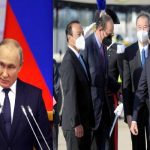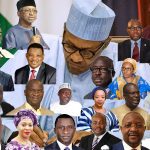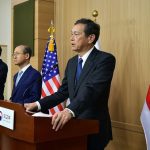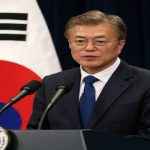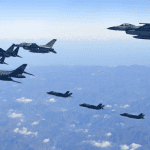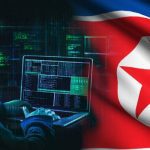Japanese Prime Minister Fumio Kishida arrived in Seoul Friday for a two-day summit with South Korean President Yoon Suk Yeol, just weeks before leaving office.
In August, Mr. Kishida chose not to seek for the leadership of his political machine, the ruling Liberal Democratic Party.
On September 27, the LDP will hold an internal presidential election, with the winner becoming the nation’s prime minister.
Assuming no additional step-downs, the next party leader will lead the LDP into battle in a general election that must take place by July 2025 at the latest.
The Seoul meeting provides Mr. Kishida with the opportunity to depart office on a positive note, to support Mr. Yoon, and to communicate with his successor.
Post-COVID, bilateral commercial and touristic travel has increased dramatically, and new visa requirements simplifying entry to both nations are expected.
The Asian countries are also expected to reach an agreement allowing their security services to evacuate each other’s citizens from geopolitical hotspots.
Experts believe there may be greater, unspoken intentions.
One is for the two Asian democracies to compare notes on the November presidential election in the United States.
Another goal is to strengthen the fledgling but weak security connections that Mr. Kishida and Mr. Yoon have established between Seoul and Tokyo to the point that future presidents cannot undo them.
The conference promises an optimistic farewell for Mr. Kishida.
Mr. Yoon said at a press conference last week that he expects to collaborate closely with Mr. Kishida’s successor.
Next year could bring cheerful Korea-Japan vibes: The start of diplomatic relations 60 years ago will be commemorated in 2025.
Japanese Prime Minister Fumio Kishida arrived in Seoul Friday for a two-day summit with South Korean President Yoon Suk Yeol, just weeks before leaving office.
In August, Mr. Kishida chose not to seek for the leadership of his political machine, the ruling Liberal Democratic Party.
On September 27, the LDP will hold an internal presidential election, with the winner becoming the nation’s prime minister.
Assuming no additional step-downs, the next party leader will lead the LDP into battle in a general election that must take place by July 2025 at the latest.
The Seoul meeting provides Mr. Kishida with the opportunity to depart office on a positive note, to support Mr. Yoon, and to communicate with his successor.
Post-COVID, bilateral commercial and touristic travel has increased dramatically, and new visa requirements simplifying entry to both nations are expected.
The Asian countries are also expected to reach an agreement allowing their security services to evacuate each other’s citizens from geopolitical hotspots.
Experts believe there may be greater, unspoken intentions.
One is for the two Asian democracies to compare notes on the November presidential election in the United States.
Another goal is to strengthen the fledgling but weak security connections that Mr. Kishida and Mr. Yoon have established between Seoul and Tokyo to the point that future presidents cannot undo them.
The conference promises an optimistic farewell for Mr. Kishida.
Mr. Yoon said at a press conference last week that he expects to collaborate closely with Mr. Kishida’s successor.
Next year could bring cheerful Korea-Japan vibes: The start of diplomatic relations 60 years ago will be commemorated in 2025.
Japanese Prime Minister Fumio Kishida arrived in Seoul Friday for a two-day summit with South Korean President Yoon Suk Yeol, just weeks before leaving office.
In August, Mr. Kishida chose not to seek for the leadership of his political machine, the ruling Liberal Democratic Party.
On September 27, the LDP will hold an internal presidential election, with the winner becoming the nation’s prime minister.
Assuming no additional step-downs, the next party leader will lead the LDP into battle in a general election that must take place by July 2025 at the latest.
The Seoul meeting provides Mr. Kishida with the opportunity to depart office on a positive note, to support Mr. Yoon, and to communicate with his successor.
Post-COVID, bilateral commercial and touristic travel has increased dramatically, and new visa requirements simplifying entry to both nations are expected.
The Asian countries are also expected to reach an agreement allowing their security services to evacuate each other’s citizens from geopolitical hotspots.
Experts believe there may be greater, unspoken intentions.
One is for the two Asian democracies to compare notes on the November presidential election in the United States.
Another goal is to strengthen the fledgling but weak security connections that Mr. Kishida and Mr. Yoon have established between Seoul and Tokyo to the point that future presidents cannot undo them.
The conference promises an optimistic farewell for Mr. Kishida.
Mr. Yoon said at a press conference last week that he expects to collaborate closely with Mr. Kishida’s successor.
Next year could bring cheerful Korea-Japan vibes: The start of diplomatic relations 60 years ago will be commemorated in 2025.
Japanese Prime Minister Fumio Kishida arrived in Seoul Friday for a two-day summit with South Korean President Yoon Suk Yeol, just weeks before leaving office.
In August, Mr. Kishida chose not to seek for the leadership of his political machine, the ruling Liberal Democratic Party.
On September 27, the LDP will hold an internal presidential election, with the winner becoming the nation’s prime minister.
Assuming no additional step-downs, the next party leader will lead the LDP into battle in a general election that must take place by July 2025 at the latest.
The Seoul meeting provides Mr. Kishida with the opportunity to depart office on a positive note, to support Mr. Yoon, and to communicate with his successor.
Post-COVID, bilateral commercial and touristic travel has increased dramatically, and new visa requirements simplifying entry to both nations are expected.
The Asian countries are also expected to reach an agreement allowing their security services to evacuate each other’s citizens from geopolitical hotspots.
Experts believe there may be greater, unspoken intentions.
One is for the two Asian democracies to compare notes on the November presidential election in the United States.
Another goal is to strengthen the fledgling but weak security connections that Mr. Kishida and Mr. Yoon have established between Seoul and Tokyo to the point that future presidents cannot undo them.
The conference promises an optimistic farewell for Mr. Kishida.
Mr. Yoon said at a press conference last week that he expects to collaborate closely with Mr. Kishida’s successor.
Next year could bring cheerful Korea-Japan vibes: The start of diplomatic relations 60 years ago will be commemorated in 2025.
Japanese Prime Minister Fumio Kishida arrived in Seoul Friday for a two-day summit with South Korean President Yoon Suk Yeol, just weeks before leaving office.
In August, Mr. Kishida chose not to seek for the leadership of his political machine, the ruling Liberal Democratic Party.
On September 27, the LDP will hold an internal presidential election, with the winner becoming the nation’s prime minister.
Assuming no additional step-downs, the next party leader will lead the LDP into battle in a general election that must take place by July 2025 at the latest.
The Seoul meeting provides Mr. Kishida with the opportunity to depart office on a positive note, to support Mr. Yoon, and to communicate with his successor.
Post-COVID, bilateral commercial and touristic travel has increased dramatically, and new visa requirements simplifying entry to both nations are expected.
The Asian countries are also expected to reach an agreement allowing their security services to evacuate each other’s citizens from geopolitical hotspots.
Experts believe there may be greater, unspoken intentions.
One is for the two Asian democracies to compare notes on the November presidential election in the United States.
Another goal is to strengthen the fledgling but weak security connections that Mr. Kishida and Mr. Yoon have established between Seoul and Tokyo to the point that future presidents cannot undo them.
The conference promises an optimistic farewell for Mr. Kishida.
Mr. Yoon said at a press conference last week that he expects to collaborate closely with Mr. Kishida’s successor.
Next year could bring cheerful Korea-Japan vibes: The start of diplomatic relations 60 years ago will be commemorated in 2025.
Japanese Prime Minister Fumio Kishida arrived in Seoul Friday for a two-day summit with South Korean President Yoon Suk Yeol, just weeks before leaving office.
In August, Mr. Kishida chose not to seek for the leadership of his political machine, the ruling Liberal Democratic Party.
On September 27, the LDP will hold an internal presidential election, with the winner becoming the nation’s prime minister.
Assuming no additional step-downs, the next party leader will lead the LDP into battle in a general election that must take place by July 2025 at the latest.
The Seoul meeting provides Mr. Kishida with the opportunity to depart office on a positive note, to support Mr. Yoon, and to communicate with his successor.
Post-COVID, bilateral commercial and touristic travel has increased dramatically, and new visa requirements simplifying entry to both nations are expected.
The Asian countries are also expected to reach an agreement allowing their security services to evacuate each other’s citizens from geopolitical hotspots.
Experts believe there may be greater, unspoken intentions.
One is for the two Asian democracies to compare notes on the November presidential election in the United States.
Another goal is to strengthen the fledgling but weak security connections that Mr. Kishida and Mr. Yoon have established between Seoul and Tokyo to the point that future presidents cannot undo them.
The conference promises an optimistic farewell for Mr. Kishida.
Mr. Yoon said at a press conference last week that he expects to collaborate closely with Mr. Kishida’s successor.
Next year could bring cheerful Korea-Japan vibes: The start of diplomatic relations 60 years ago will be commemorated in 2025.
Japanese Prime Minister Fumio Kishida arrived in Seoul Friday for a two-day summit with South Korean President Yoon Suk Yeol, just weeks before leaving office.
In August, Mr. Kishida chose not to seek for the leadership of his political machine, the ruling Liberal Democratic Party.
On September 27, the LDP will hold an internal presidential election, with the winner becoming the nation’s prime minister.
Assuming no additional step-downs, the next party leader will lead the LDP into battle in a general election that must take place by July 2025 at the latest.
The Seoul meeting provides Mr. Kishida with the opportunity to depart office on a positive note, to support Mr. Yoon, and to communicate with his successor.
Post-COVID, bilateral commercial and touristic travel has increased dramatically, and new visa requirements simplifying entry to both nations are expected.
The Asian countries are also expected to reach an agreement allowing their security services to evacuate each other’s citizens from geopolitical hotspots.
Experts believe there may be greater, unspoken intentions.
One is for the two Asian democracies to compare notes on the November presidential election in the United States.
Another goal is to strengthen the fledgling but weak security connections that Mr. Kishida and Mr. Yoon have established between Seoul and Tokyo to the point that future presidents cannot undo them.
The conference promises an optimistic farewell for Mr. Kishida.
Mr. Yoon said at a press conference last week that he expects to collaborate closely with Mr. Kishida’s successor.
Next year could bring cheerful Korea-Japan vibes: The start of diplomatic relations 60 years ago will be commemorated in 2025.
Japanese Prime Minister Fumio Kishida arrived in Seoul Friday for a two-day summit with South Korean President Yoon Suk Yeol, just weeks before leaving office.
In August, Mr. Kishida chose not to seek for the leadership of his political machine, the ruling Liberal Democratic Party.
On September 27, the LDP will hold an internal presidential election, with the winner becoming the nation’s prime minister.
Assuming no additional step-downs, the next party leader will lead the LDP into battle in a general election that must take place by July 2025 at the latest.
The Seoul meeting provides Mr. Kishida with the opportunity to depart office on a positive note, to support Mr. Yoon, and to communicate with his successor.
Post-COVID, bilateral commercial and touristic travel has increased dramatically, and new visa requirements simplifying entry to both nations are expected.
The Asian countries are also expected to reach an agreement allowing their security services to evacuate each other’s citizens from geopolitical hotspots.
Experts believe there may be greater, unspoken intentions.
One is for the two Asian democracies to compare notes on the November presidential election in the United States.
Another goal is to strengthen the fledgling but weak security connections that Mr. Kishida and Mr. Yoon have established between Seoul and Tokyo to the point that future presidents cannot undo them.
The conference promises an optimistic farewell for Mr. Kishida.
Mr. Yoon said at a press conference last week that he expects to collaborate closely with Mr. Kishida’s successor.
Next year could bring cheerful Korea-Japan vibes: The start of diplomatic relations 60 years ago will be commemorated in 2025.



